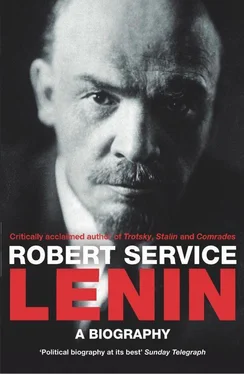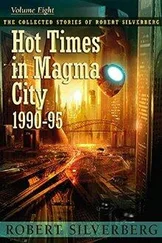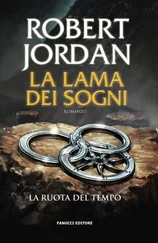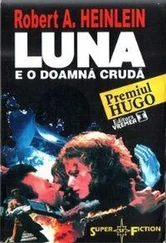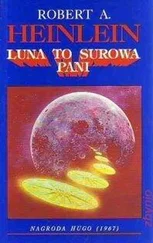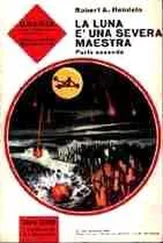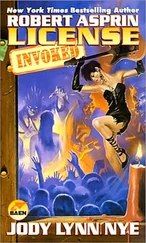The world’s first socialist state was proclaimed. This state – which was the territorial core of what eventually became the USSR – survived against the odds. Lenin and the communist leadership withdrew Russia from the First World War and won the Civil War. By setting up the Communist International, they imprinted themselves upon politics across the continent. The USSR was a beacon to the world’s far-left socialists and a dangerous rock to conservatives, liberals and other socialists. Lenin’s interpretation of the doctrines of Marx and Engels became holy writ for communists, and at his death was designated as Marxism–Leninism. After the Second World War the communist model – the one-party state, ideological monopoly, legal nihilism, militant atheism, state terror and the elimination of all rival institutions of authority – was transferred to eastern Europe, China, south-eastern Asia and eventually parts of the Caribbean and Africa. Communism was dismantled in eastern Europe in 1989 and in the USSR at the end of 1991. But no one had made a greater impact upon the development and establishment of the communist order than Lenin.
This could never have happened if Lenin had not spent his early life in an extraordinary society at a unique period of its development. Growing up in the Russian Empire in the late nineteenth century, he and others of his generation were caught in a vortex of historical change. The potential of the world’s largest country was beginning to be exploited. The old cultural and social constraints were being undermined. International contacts were being improved and the cultural and scientific achievements made the Russian Empire a marvel to the world.
Yet the transformation was at a preliminary stage and most educated Russians were dismayed by the slowness of their country’s progress. Many thought Russia was too vast, variegated and tradition-bound to change. They had a point. It was five thousand miles from the Polish lands in the west of the empire to Vladivostok on the Pacific coast. From the White Sea down to the Persian and Ottoman frontiers it was two thousand. The roads were poor and rivers froze in the long winter months. The rail network was rudimentary: the Trans-Siberian Railway was started in 1891 and not completed until 1903. On every border there were problems. To the west was the threat from Germany and Austria–Hungary. To the south there were tensions with the Ottomans – and war broke out in 1876. In the east, Russia feared that other powers would despoil China. Japanese power too was on the rise. Russian armed forces had long lost their reputation for invincibility. In the Crimean War of 1854–6 a limited expeditionary force of the British and French came close to victory over the Russian defence. The Russians were more successful against the Turks but there was no room for complacency. The international power of the Romanovs no longer had the weight it had won in global relations after Napoleon’s retreat from Moscow in 1812.
Society in Russia was ill prepared for change. Russia had ‘missed’ the Renaissance and, to a large extent, the Enlightenment. The reforming tsar Peter the Great had reinforced feudalism at the beginning of the eighteenth century by forcibly tying peasants to their landed masters. Educational standards were woeful. Legal norms went unheeded. Poverty was awesome. The Romanov police-state banned political parties, trade unions and public protest, and administrative arbitrariness was pervasive.
Emperor Alexander II tried to nudge the country towards modernity in 1861 by freeing the peasants from compulsory personal bondage to the landed nobility, and he followed this with a series of alterations in judicial, military and educational institutions. But there remained a massive gap between rich and poor. The legendarily rich Yusupov family had estates all over the country – land equivalent in size to a small European country – and retainers, Old Master paintings, fine clothes and meals shipped by train from Germany. At the other end of the range there were the households of the Russian poor. Most peasants lived in their native village and rarely strayed beyond it. Each wore bast shoes and a smock, let their beards grow long and feared God in a traditional way unassociated with Biblical study. Peasants were highly credulous and had little idea of the broader concerns of public life. Exploited as a human resource by successive tsars, they were subject to discriminatory legislation including even flogging. Resentment against the authorities and the propertied elites was acute. Across the country there were other groups that objected to the social structure. The so-called ‘Old Believers’ had fled from the reformation of the Church ritual in the seventh century. There were also various sorts of sectarians. Sparsely inhabited areas of Siberia existed where the police barely penetrated – and Siberia was used as a dumping ground for convicts as Australia was used by the British.
Disgruntlement was growing not only in the Russian heartland but also in the ‘borderlands’. Poland had been partitioned among Russia, Prussia and Austria in the eighteenth century and the Poles who were under Romanov dominion revolted in 1830 and 1863. The Finns were surly and looked down on the Russians. The Caucasus mountains were in rebellion through the later years of the nineteenth century. Even the Ukrainians, who had seldom given much trouble to the tsars, were becoming restless. It was not a quiescent empire.
Yet the potential of the country was enormous. Raw materials existed in unrivalled abundance. The Russian Empire had coal, iron, diamonds, gold and oil. It had vast spaces where grain could be cultivated. It had opportunities to import foreign capital to intensify its industrial drive. It had a ruling elite that was refreshed by contact with foreign countries, and increasingly official opinion favoured a rapid attempt to catch up with the achievements of the advanced industrial countries to the west. Russia and its borderlands had an ever more buoyant high culture. Russian novelists Tolstoi, Dostoevski and Turgenev were taking Europe by storm. Russian scientists, led by Mendeleev, gained acclaim. Russian composers Rimski-Korsakov and Chaikovski had a continental reputation and, although Russian painters were not yet known abroad, they were superb exponents of their craft. Throughout the Russian Empire there was educational progress. And there was an expanding professional middle class that strove to build social institutions and practices independent from the state administration. Local agencies of self-government were being formed and schooling was being spread to the sons and daughters of the poor, especially in the towns. Architecture, dress and popular behaviour were undergoing change. Even the tsarist bureaucracy was becoming less dominated by the traditional nobility than had once been characteristic.
It was a turbulent transformation. Political passions rose high as rival ideologies were attacked and defended. The less tolerant critics of the status quo were turning to violence against an Imperial state that for centuries had practised repression upon society. The agrarian socialists ( narodniki ) in particular were conducting propaganda from the 1860s, and some of them were engaged in assassination attempts. Liberal political groups also existed. But from the 1880s it was Marxism that became the most prominent ideology of assault upon the Romanov monarchy. It was a race against time. Would the tsarist system sustain its energy and authority for a sufficient period to modernise society and the economy? Would the revolutionaries accommodate themselves to the changing realities and avoid the excesses of violent politics? And would the tsarist system make concessions to bring this about?
Lenin was one of those many intellectuals demanding Revolution. The political and economic structure was offensive to him; the social hierarchy disgusted him. The opportunities for consensual development in Russia held no appeal for him. He hated the Romanovs and Old Russia. He wanted a New Russia, a European Russia, a Westernised Russia. His specific admiration for Germany was enormous. But Lenin’s approval of ‘the West’ was selective. He admired Marx, the German Marxist movement and contemporary German industry and technology. But he wanted the West too to change. There had to be a European socialist revolution that would sweep away the whole capitalist order. He was determined at the same time to liquidate those phenomena in Russia and elsewhere that appeared to him to be backward and oppressive. Lenin belonged to a particular type within his generation in his country. He believed in Enlightenment, Progress, Science and Revolution. In each instance he offered his own interpretation. Nothing shook his confidence that he had the right ideas.
Читать дальше
